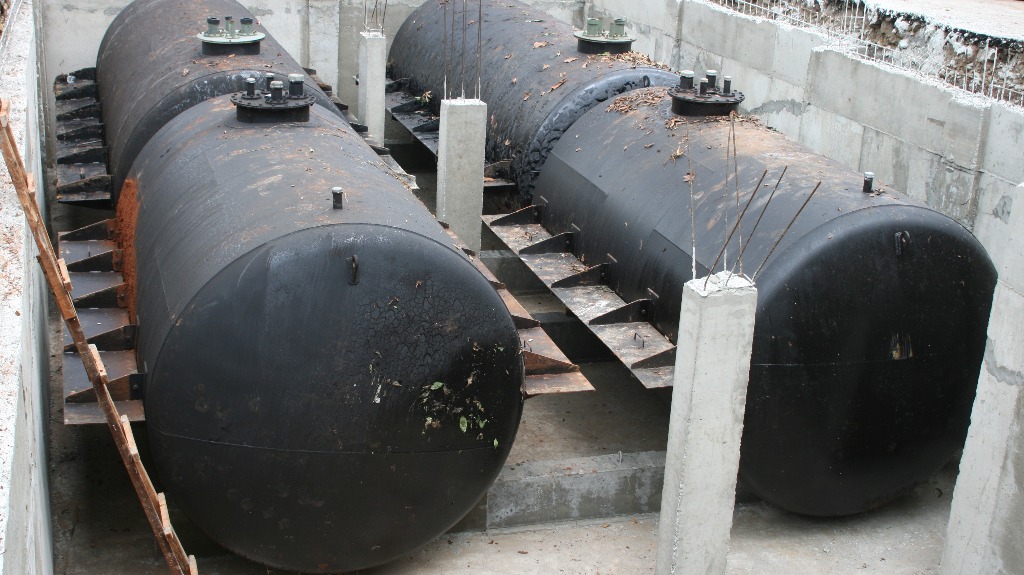
As you drive through the Houston Metro, it’s easy to miss what lies beneath the surface: thousands of underground storage tanks, quietly aging under gas stations, refineries, dry cleaners, and industrial properties. These tanks store fuel, chemicals, and other hazardous materials. When one leaks, it’s not just an environmental issue. It can threaten drinking water, damage property, and endanger lives.
If you own property near a leaking UST, or if your health or business has been affected by contaminated soil or groundwater, you may have legal options. Here’s what you need to know.
What Is a UST?
A UST is any tank and its piping system that has at least 10 percent of its volume underground. Most commonly, USTs store gasoline, diesel, solvents, or other petroleum-based products. In urban areas like Houston, these tanks are common, especially under older gas stations and industrial sites.
Over time, tanks corrode, seals fail, and leaks happen. When that occurs, hazardous substances can seep into the soil and groundwater, creating environmental and public health risks.
Why UST Leaks Matter in Houston
Houston’s clay-heavy soil and flat terrain don’t make it easy to contain underground contamination. Once leaked substances enter the groundwater, they can spread quickly. Contaminants may cross property lines or reach municipal water sources.
Common problems include:
- Contaminated drinking water
- Vapor intrusion into buildings
- Unsafe soil for gardening or development
- Lower property values
Benzene, toluene, and xylene are just a few of the toxic chemicals commonly released during a fuel leak. Long-term exposure to these substances has been linked to cancer, neurological damage, and other serious health issues.
Who’s Liable for a UST Leak?
Texas law generally places responsibility for a leak on the tank’s current owner or operator. But depending on the circumstances, other parties may also be held accountable. These could include:
- Former owners of the tank or property
- Landlords and leasing companies
- Maintenance contractors
- Fuel distributors or suppliers
If you bought contaminated property without knowing it, or if a neighboring property caused the damage, you may still have legal recourse under Texas environmental and property laws.
What Laws Govern UST Leaks?
USTs are regulated in Texas by the Texas Commission on Environmental Quality (TCEQ), which enforces both state and federal rules. Important legal frameworks include:
- Texas Water Code
- Texas Health and Safety Code
- Federal Resource Conservation and Recovery Act (RCRA)
Texas law requires owners to report suspected or confirmed leaks to the TCEQ. Failure to do so can result in steep fines or other penalties.
For affected neighbors and property owners, these laws may open the door to legal action. Potential claims include:
- Recovery of cleanup costs
- Lawsuits for toxic exposure or illness
- Claims for property damage
- Nuisance or trespass claims for migrating contamination
What Compensation Is Available?
Victims of UST leaks may be entitled to financial recovery for:
- Medical treatment and monitoring
- Soil or water cleanup costs
- Reduction in property value
- Lost business income
- Pain, suffering, and emotional distress

In some cases, courts may also award punitive damages when the responsible party acted with clear negligence or disregard for public safety.
Don’t Wait To Take Action
In Texas, the statute of limitations for most contamination claims is two years from the date the damage was discovered or should have been discovered. This window can close quickly, so it’s important to seek legal advice as soon as possible.
Talk To a Houston Environmental Attorney Who Gets It
UST litigation isn’t simple. It takes legal experience, technical knowledge, and a clear strategy. At Parks Law PLLC, we’ve helped Houston-area families, businesses, and landowners navigate the fallout from toxic leaks and get the answers they deserve.
If you suspect a leak or have questions about your legal options, contact Parks Law PLLC today to schedule a confidential consultation.
